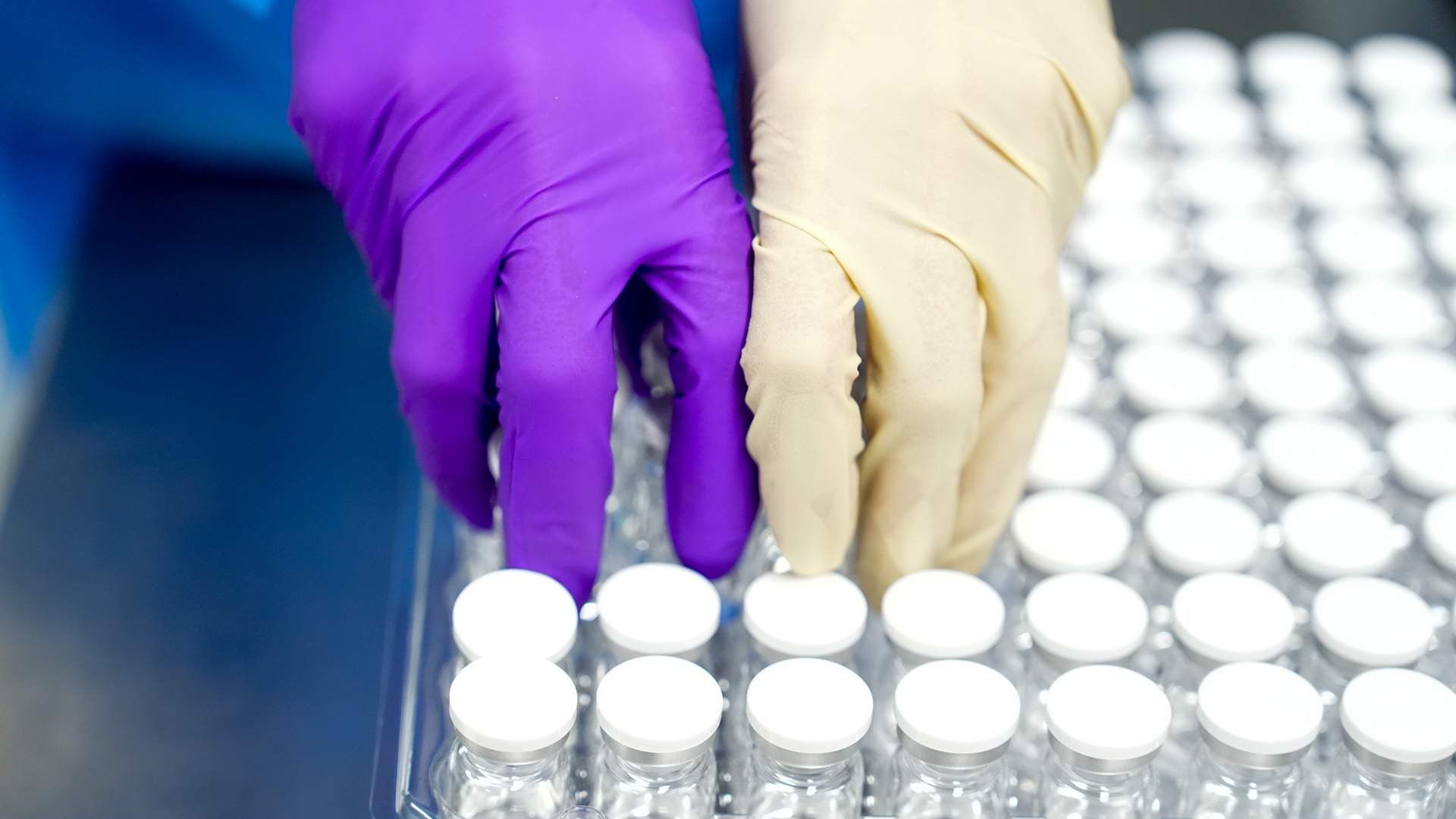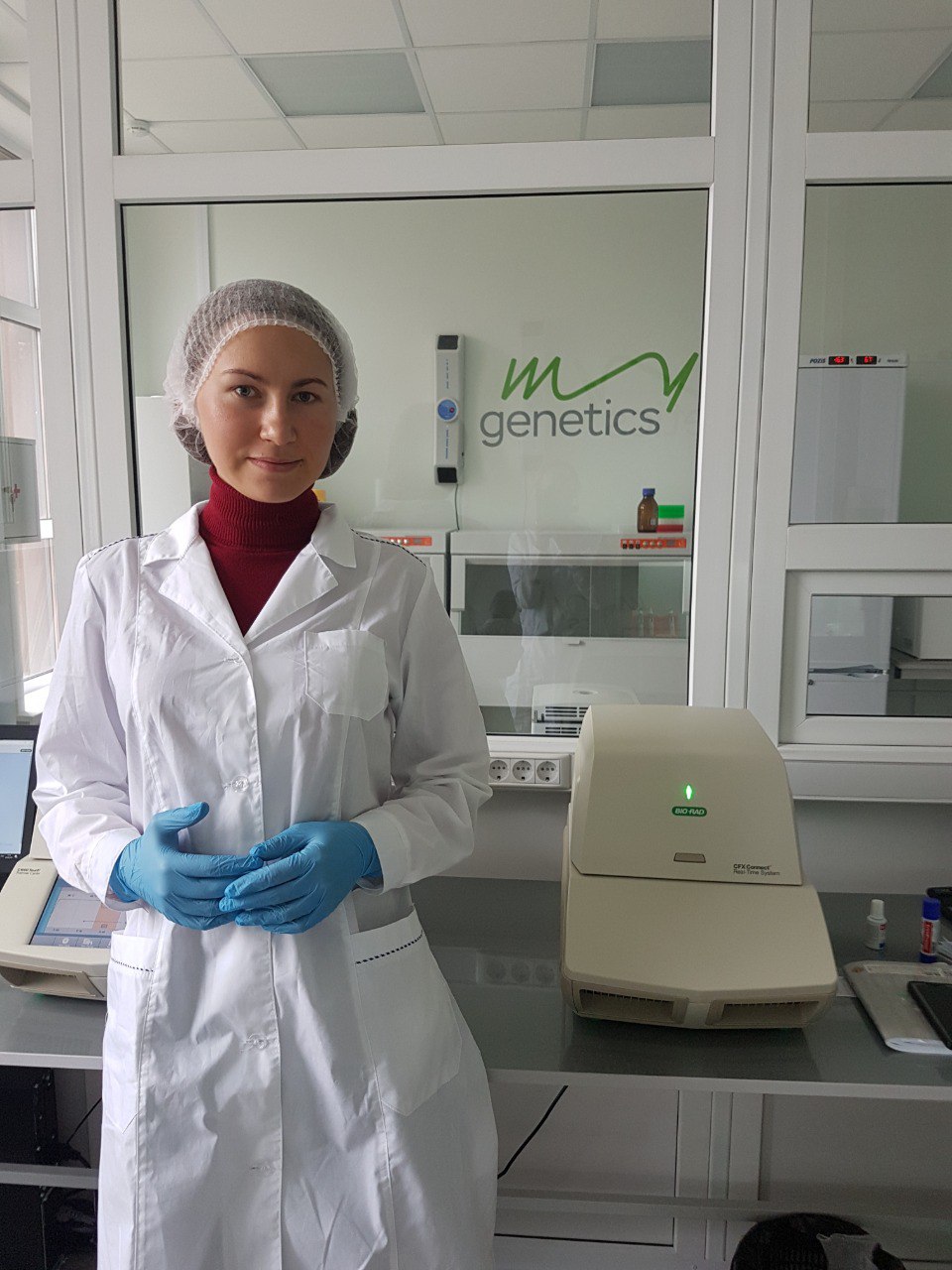- Статьи
- Science and technology
- Hormone is simple: a single analysis will help you learn about the risk of endocrine pathologies
Hormone is simple: a single analysis will help you learn about the risk of endocrine pathologies

The first set of reagents designed to detect genetic predispositions to a wide range of hormonal disorders has been registered in the Russian Federation. The test will determine the risks of developing diabetes, venous thromboembolism, polycystic ovarian syndrome, diseases of the female reproductive system and other pathologies. Experts interviewed by Izvestia said that the test can be useful for patients with a family history of hormonal disorders, as well as for women planning pregnancy. However, in the long term, its benefits may be questioned due to the rapid development of genetic technologies and the transition to genome-wide research.
Analysis of hormonal pathologies
Scientists from Novosibirsk have received a registration certificate for the Endocrine kit reagent kit, designed to identify genetic predispositions to hormonal disorders and the risk of a number of related diseases based on the analysis of 52 DNA polymorphisms, that is, differences in the DNA sequence in individual people.
— It is designed to determine the genetic factors affecting the metabolism of androgens and estrogens (male and female sex hormones) and sensitivity to them, sensitivity to follicle-stimulating and luteinizing hormones, biosynthesis and secretion of insulin and sensitivity to it, thyroid hormone metabolism. In addition, the reagent kit includes some genes that affect the age of menopause, as well as the risk of complications during pregnancy and taking hormonal drugs," a leading researcher and chairman of the expert council of the National Center for Genetic Research (MyGenetics, Novosibirsk, Skolkovo startup) told Izvestia Irina Kolesnikova.
Among the diseases associated with hormonal disorders that the new test will help identify are diabetes mellitus, thyroid hormone disorders, venous thromboembolism, polycystic ovary syndrome, diseases of the female reproductive system and some other conditions that can lead to problems with reproductive functions, she said.
According to her, now the traditional methods of diagnosing these diseases are considered to be the direct determination of hormone levels, glucose and glycated hemoglobin (for diabetes mellitus), hemostasis, instrumental studies (ultrasound, cytology, etc.).
Genetic testing will help identify in advance the increased risks of hormonal disorders, "weaknesses" and will provide an opportunity to develop a strategy for the prevention of these disorders and related diseases.

— For example, type 2 diabetes may involve various mechanisms of development, and genetic analysis using a new set of reagents will help identify not only the risk of developing the disease, but also how this process is most likely to proceed. This will help to personalize prevention and treatment as much as possible," said Irina Kolesnikova.
In addition, the results of such a study can help in preparing for pregnancy, in choosing a protocol for assisted reproductive technologies, and in prescribing hormone therapy, the specialist noted.
The prospect of genetic analysis of endocrine pathologies
The scientists noted that genetic testing will reveal the predisposition and possible mechanisms of the development of disorders, but will not show the current condition, so it should be supplemented with standard studies.
Now there are foreign companies offering genetic testing to identify such risk factors. However, they have a number of disadvantages: a limited number of genetic markers, lack of an integrated approach, and high cost. In addition, there are currently problems with the transportation of biomaterial, the developers said.
In Russia, there are also separate genetic tests or reagent kits for their implementation (for example, the analysis of genetic markers of predisposition to polycystic ovaries).
"Our solution allows doctors and patients to take a fresh look at the diagnosis of hormonal disorders: not just to fix the consequences, but to understand the causes at the genetic level," Vladimir Volobuyev, director of the National Center for Genetic Research, told Izvestia.
Preventive knowledge about predisposition to endocrine diseases can be applied to the prevention of complex pathologies already at the stage of medical examination, which will delay the onset of diseases, and possibly prevent them, said Elena Novikova, senior researcher at FITZ FTM, market expert at NTI Helsnet, urologist and andrologist. Therefore, the search for new tools for diagnosing early detection of diseases and predicting a healthy life for patients is important, she noted.
The main advantage of this approach is the ability to identify risks in advance and plan preventive measures in a timely manner, said Albert Rizvanov, head of the Personalized Medicine Center of Excellence at Kazan (Volga Region) Federal University.
— The promise of this set of reagents is obvious: it can be especially useful for patients with a family history of hormonal disorders, diabetes mellitus, thromboembolic complications, reproductive diseases, as well as women planning pregnancy or hormone therapy. Early detection of risks allows the doctor to build the most individualized and effective strategies for prevention and therapy," he said.
However, the long-term prospects of such highly specialized kits may be in doubt due to the rapid development of genetic technologies, the expert noted. Already, the cost of genome-wide studies is gradually decreasing to a level comparable to narrowly focused tests, and the information value is much higher. In the coming years, we can expect a gradual transition to genome-wide profiling, which will make such specialized kits less relevant.
— A promising area is the analysis of genome—wide data combined with biochemical parameters, microbiome, and lifestyle data. This is the only way to build truly working predictive models. And the panels are the day before yesterday," said Dmitry Chebanov, a biological scientist and founder of biomedtech startups BioAlg Corp and OncoUnite.
The cost of such genetic tests reaches tens of thousands of rubles, experts noted. In the future, scientists plan to expand the range of similar analyses, the developers said.
Переведено сервисом «Яндекс Переводчик»





